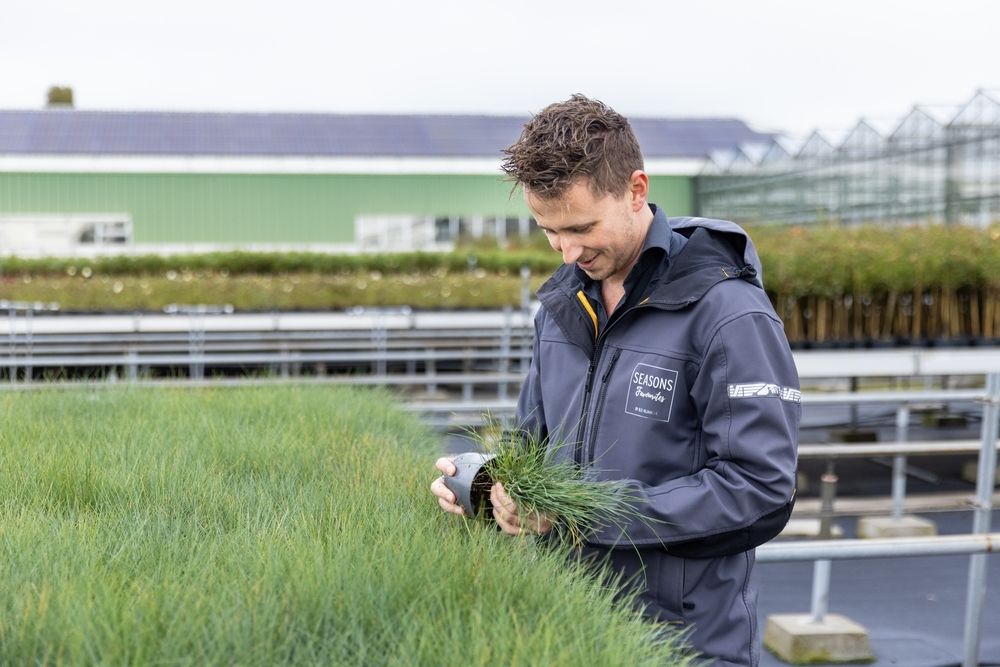
Reliable and transparent floriculture marketplace
Consumers are increasingly demanding verifiably sustainable flowers and plants. The reliability and transparency of our platform are, therefore, imperative for the sector’s success and reputation. Furthermore, we also work on digital security by monitoring threats and taking action.
Unambiguous sustainability criteria
While we realise that sustainability goes beyond certification, it is one way of demonstrating reliability and transparency. Together with trading companies, the VGB (Association of Floriculture Wholesalers) and FSI (Floriculture Sustainability Initiative), we are working to raise awareness and put environmental monitoring higher on the agenda. In this way, we promote greater transparency in the chain.
From 1 January 2026, the majority of members and suppliers who offer, trade and settle flowers and plants through the Royal FloraHolland platform must be certified in accordance with the requirements of the Floriculture Sustainability Initiative (FSI basket of standards). Step by step, all members and suppliers will be phased towards full FSI compliance by 2027.
From 1 January 2026, the majority of members and suppliers who offer, trade and settle flowers and plants through the Royal FloraHolland platform must be certified in accordance with the requirements of the Floriculture Sustainability Initiative (FSI basket of standards). Step by step, all members and suppliers will be phased towards full FSI compliance by 2027.


Reducing the footprint
We are committed to the development of a product footprint, an independent and scientific method to calculate, compare and monitor the environmental impact of flowers and plants.


Resilient floriculture sector
Together with customs, police and other authorities, we are working to make the sector structurally safer and more resilient.


Plant passport
We value transparency in our operations, and the plant passport is an example of this. Since the end of 2019, the plant passport has been mandatory for all plants, flower bulbs, and various seeds traded within the EU that are intended for planting or to remain planted. This obligation is also stipulated in the new EU Plant Health Regulation. The plant passport provides clarity on the identity and origin of plants and plant material. This information is important for preventing disease and infestation. The plant passport is also proof that plants have been checked by the supplier and that the plants do not contain harmful quarantine organisms (Q organisms). This way, the plants can be traded freely within the EU without the need for checks at national borders.
All growers wishing to trade through our floriculture marketplace legally required to have a plant passport. Without a plant passport, we cannot and should not auction their lots. As a grower, you physically apply the plant passport per smallest trade unit, for example at plant level (mandatory from pot size 10), tray or box. With the plant passport, our buyers can buy safely and worry-free on our floriculture marketplace.
Find practical information about the plant passport on the websites of the Dutch Food and Consumer Product Safety Authority, NAK Tuinbouw and the Dutch Flower Auction Association.
All growers wishing to trade through our floriculture marketplace legally required to have a plant passport. Without a plant passport, we cannot and should not auction their lots. As a grower, you physically apply the plant passport per smallest trade unit, for example at plant level (mandatory from pot size 10), tray or box. With the plant passport, our buyers can buy safely and worry-free on our floriculture marketplace.
Find practical information about the plant passport on the websites of the Dutch Food and Consumer Product Safety Authority, NAK Tuinbouw and the Dutch Flower Auction Association.

